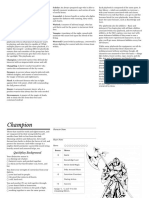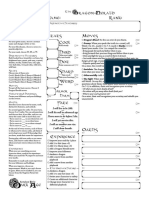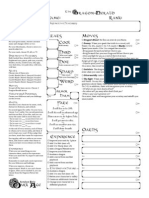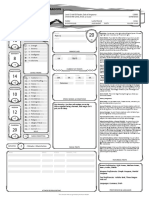0% found this document useful (0 votes)
13 views13 pagesCharacter Backgrounds
The document outlines various character backgrounds and features within the context of a fantasy setting, detailing organizations such as the Hellriders, Order of the Gauntlet, and Flaming Fist, each with unique skills, equipment, and advancement opportunities. It also introduces additional backgrounds like Acolyte, Charlatan, Sage, and Faceless, providing insights into their characteristics and abilities. Each background emphasizes the character's role in the world, their connections, and the potential for growth and interaction with other factions and communities.
Uploaded by
Jason EnsignCopyright
© © All Rights Reserved
We take content rights seriously. If you suspect this is your content, claim it here.
Available Formats
Download as PDF, TXT or read online on Scribd
0% found this document useful (0 votes)
13 views13 pagesCharacter Backgrounds
The document outlines various character backgrounds and features within the context of a fantasy setting, detailing organizations such as the Hellriders, Order of the Gauntlet, and Flaming Fist, each with unique skills, equipment, and advancement opportunities. It also introduces additional backgrounds like Acolyte, Charlatan, Sage, and Faceless, providing insights into their characteristics and abilities. Each background emphasizes the character's role in the world, their connections, and the potential for growth and interaction with other factions and communities.
Uploaded by
Jason EnsignCopyright
© © All Rights Reserved
We take content rights seriously. If you suspect this is your content, claim it here.
Available Formats
Download as PDF, TXT or read online on Scribd
/ 13


















































































